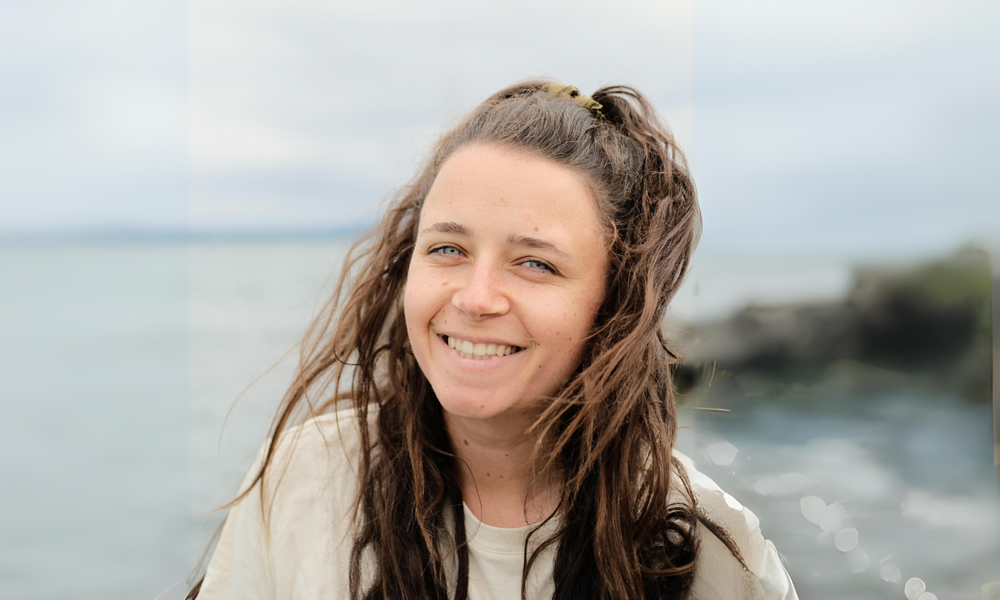World Physiotherapy Day: putting women’s health on the agenda
- News

When Kyra Morandini came to Groningen to study International Physiotherapy at the Hanze, she knew exactly what she wanted: a more inclusive educational programme that took gender differences into account. She had searched for a physiotherapy programme that included women’s health, but it simply didn’t exist yet.
Text: Nathalie Meeuwsen
That didn’t stop her though. She decided to make it the focus of her final thesis. She did a literary review of studies that had looked into the influence of the menstrual cycle on the biomechanics of active females, specifically the lower limbs. Kyra: “It was really hard to come up with a title for my thesis because there is such a lack of literature on women’s health in general and even more so in relation to biomechanics. I wanted to be more specific at first and look at the influence of the menstrual cycle on muscles and muscle contraction, but there just wasn’t enough information on it. So, I included muscles, joints, tendons and ligaments because it was the only way I could find enough literature for a review.”
“I’ve known since day one that it was going to be a struggle and that I probably wasn’t going to come up with any solid answers. But I really wanted to talk about the menstrual cycle. I think it was important to dive into it”. Because the studies she investigated were so diverse, Kyra needed a different tool to assess the quality of the research than the one most of her classmates were using. She found the Q-Coh tool gave her an overall assessment of the quality of the studies in her review. They all proved to be within the acceptable range. However, the studies were looking at very small groups of women, about 20 or 30 at most, so they were not that reliable and most of the results were inconclusive. Bigger cohorts are needed to get any statistically significant results. According to Kyra, those larger types of studies are now being done.
Although Kyra’s review may not have come up with any significant results regarding lower limb biomechanics in active women, she did achieve her main aim: her thesis has put the spotlight on the lack of attention to women’s health issues in the physiotherapy curriculum.
Since writing her review, she has had discussions with the physiotherapy board to remedy this. Together with her supervisor, Jean Driessen, she has put forward a proposal for a more inclusive physiotherapy programme. Recommendations include paying more attention to hormonal differences between men and women at the start of the programme. This will help future physiotherapists, men in particular, to be a bit more comfortable bringing up topics such as women’s menstrual cycle or physical changes due to the menopause in conversations with their clients. They have also made a list of specific women’s health issues that could be included in relevant blocks of the physiotherapy programme, for example, tendon disorders in menopausal women, lower back pain during pregnancy and pelvic floor issues post pregnancy.
Kyra is not sure whether all of her recommendations will be adopted by the physiotherapy programme, because you have to leave something out to make room for new course material. As she puts it: “We need small steps to reach the bigger steps, and even just talking about the effects of the menopause and other women’s health concerns in class is an improvement right now.” Kyra reckons including women’s health would be a huge selling point for the Hanze as no other programme is currently offering this.
The physiotherapy curriculum committee has acknowledged the importance of including women’s health. They have decided their first point of action should be to raise awareness of women’s health among their teaching staff. They have asked Kyra to be involved in this by giving a short presentation during a study day. They will ask their teachers to mention women’s health where relevant in the first two years of the programme. They will also ask curriculum developers to include at least one study task on the subject in the obligatory minor in the third year.
This article appears in the run-up to World Physiotherapy Day. World Physiotherapy Day is celebrated on 8 September each year to raise awareness of the importance of physiotherapy in society.

Would you like to know more about the International Physiotherapy Programme (IPP)?
Visit the programme pageHow satisfied are you with the information on this page?